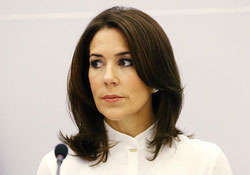Statement by Her Royal Highness Crown Princess Mary of Denmark for World Antibiotic Awareness Week 2016

WHO
15-11-2016
Antimicrobial resistance (AMR) is one of the most serious threats to global health of our time. Though the alarm was raised on this issue several years ago, existing antibiotics continue to be overused and misused and no new antibiotics have been produced to replace those that have become ineffective. As a result, more and more resistant bacteria now put our health at great risk, and common infections can become incurable diseases.
The good news is that global leaders are aware of the serious threat that AMR poses. In September 2016, the United Nations General Assembly met in New York to discuss AMR for the first time. This was the fourth time that the agenda focused on a health topic. Heads of state recognized the seriousness of the situation and agreed on a sustainable plan of action.
We must maintain the momentum achieved and we must build upon it. The second World Antibiotic Awareness Week is an opportunity to focus the world’s attention on the dramatic scenario that AMR presents – a post-antibiotic era in which bacterial infections are no longer treatable – and to work towards a whole-of-society response to this threat.
World Antibiotic Awareness Week takes place on 14–20 November 2016. This year, WHO is focusing on the role of health care workers – the doctors, nurses, pharmacists and hospital prescribers who are on the frontlines when it comes to defending the effectiveness of antibiotics. These professionals must have access to the tools and conditions needed to be frontline defenders, including a supportive environment and antimicrobial stewardship.
For almost 10 years, Europe has been a leader in the fight against AMR. Its commitment is a strong example for the rest of the world. This week is an important reminder that urgent and vigorous action must be taken to promote the cautious use of antibiotics. Responsible and careful use of antibiotics is one of the most effective ways to reduce AMR.
Let us work together to ensure that the world “handles antibiotics with care” – not just for our generation, but for the sake of future generations.



